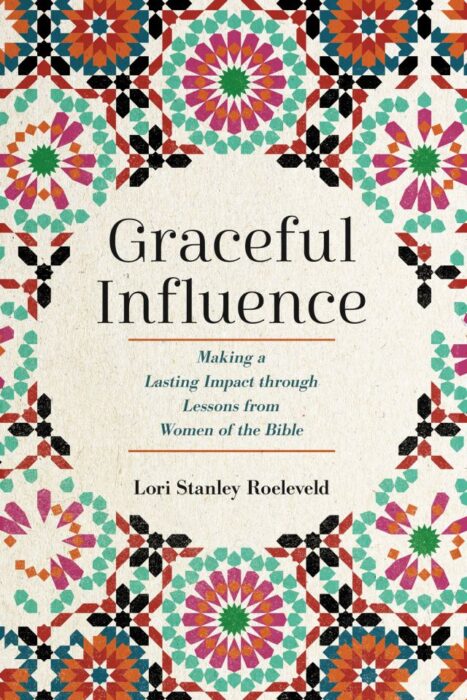 I am grateful for a humble, Jesus-loving pastor who doesn’t weave each week’s sermon from the whole cloth of the headlines and social media debates.
I am grateful for a humble, Jesus-loving pastor who doesn’t weave each week’s sermon from the whole cloth of the headlines and social media debates.
Oh, he’ll give you scriptural guidance if you’re wading your way through the muck of 2025 but not in a tweet.
It will look more like an open-book exam in a quiet room with extended time for thought and dialog.
He’s on social media but he’s no meme-a-minute minister. More like a steady-stream-of-Scripture scholar interspersed with slice-of-life comics and quotes from old dead guys whose faith survived their own 2025’s.
Our current sermon series, a leisurely stroll through Ezra, Nehemiah, and Esther, has been rolling along for weeks.
Now, we’re in Esther and, from that pulpit, our pastor is doing something radical, even unthinkable–he’s simply reading and teaching Esther.
With all the noise in the world, he has us open our Bibles, find where we left off, and continue on.
He reads the passage. Reads it again, slowly, helping us understand cultural or biblical context. Speculates from time-to-time but makes it clear it’s speculation. Then, when we’ve read it with our own eyes and should really have the gist of what the passage actually says, what happened, and what we might learn of God from it, he concludes with one or two thoughts for us.
But since now we’ve read it ourselves, been carefully taught, and we’re filled with the Holy Spirit, the Lord speaks.

I’ve read Esther many, many times. Women’s Bible studies and retreats spend inordinate and disproportionate hours on Esther and Ruth. This week, though, I saw something new.
Two main characters become indignant. Two other main characters, with much more reason for indignance, instead listen, speak quietly, and act when action is called for.
That struck me because my current world is awash with indignation.
From screaming podcasters to talking heads on television to friends on social media, I am subject to lethal doses of indignation the moment I check my phone in the morning. And not only am I subjected to it, I’m also encouraged to join in, suspect if I don’t, and the object of it if I dare suggest another way. (And yet, here I go.)
In Esther, King A (the name by which he’ll be known here for ease of reading) is powerful over all the Persian empire. His word is law. He has all that any man could desire–more even. One week, he throws a banquet for all his nobles and they enjoy his wealth and drink– a lot. His wife, Queen Vashti, holds a separate banquet for the women. At last, when everyone is quite rosy, King A sends a command that Queen Vashti appear before him. She declines.
We don’t know why (and even if you think you know, refrain from telling me).
King A becomes indignant. And in his indignance, she becomes “the woman formerly known as Queen Vashti” and he listens to unwise counsel from a bunch of his unwise guests. (Read the book for details.) He creates an ill-advised law and initiates a campaign to find a new queen.
That’s when we meet the two people who refrain from indignation–Mordecai and the young relative entrusted to his care, Hadassah, who will become known as Esther.
 Read the story. You’ll see Mordecai and Esther do a lot of listening. They speak quietly, even when they are following the ways of their people rather than the king’s edicts. They act when necessary but not before.
Read the story. You’ll see Mordecai and Esther do a lot of listening. They speak quietly, even when they are following the ways of their people rather than the king’s edicts. They act when necessary but not before.
You see, they are exiles, foreigners, Jews dispersed to a land that isn’t theirs. Their people have been endangered many times just for being who they are. They follow a living God but they are in a land of many gods. We can assume they’ve seen some trouble since Esther is an orphan and they are far from home.
But, they refrain from indignation. At least, from public displays.
The second man who indulges indignation is Haman. Haman has power, wealth, position, and every reason to be secure in life but such men never seem to rest easily on their status and acquisitions. He convinces King A to command that everyone bow down and pay homage to him.
Mordecai does not bow.
We don’t know why (and even if you do know, refrain from telling me).
Haman becomes indignant. And in his indignance, he indulges an ancient prejudice in his heart and entices King A to enact a law that on one certain day, all the people in all the kingdom shall murder every Jewish man, woman, and child in the land.
It would seem a threat to the Jews but as it turns out, Haman is the one executed in the end.
Indignation: “anger or annoyance provoked by what is perceived as unfair treatment.”
So, to recap, two powerful men grow indignant at perceived threats and act unfairly, unwisely, and dangerously only to have it backfire in the end. One man and one woman, under constant actual threat listen carefully, speak quietly, and take action when action is required and they overcome.
After church, I began to think through the biblical stories. Who was indignant? Joseph’s brothers? Pharoah? Job’s friends? Nabal? Jonah? Who listened, spoke quietly, and acted when action was called for? Joseph. Job. Daniel. Moses. Abigail. God.
This is what guides me as we enter the breach of 2025. I am tethered to the rock that is higher than I. I stand on God’s Word. I listen to the quiet whisper of the Holy Spirit. I walk with Jesus. I listen. I speak quietly. I act when action is required. At least, that is my goal.
action is required. At least, that is my goal.
Indignation seems powerful. Rants are beautiful things. As a writer, I adore a well-crafted passionate rant but sort of like I appreciate a meal loaded with carbs, salt, and fat. It’s a delicious indulgence but the next morning is a dawn of regrets and consequences. A steady diet of it would surely lead to an early death.
None of us will build our platforms on listening, speaking quietly, and acting when action is required–at least, not on this side of glory. I get the temptation.
And yet, who knows? When the book of Esther opens, King A and Haman have all the power. They are the ones who look as if they’re holding every card.
God isn’t even mentioned in Esther. That’s the power He holds. Even in a foreign land where His name is not spoken and His presence isn’t celebrated by all, He is.
And those who know that, live to testify.
 On this outpost of glory, we represent the One who has gone ahead to prepare a place for us. His life and His teachings weren’t characterized by indignation. If anyone had reason for it, it was Him.
On this outpost of glory, we represent the One who has gone ahead to prepare a place for us. His life and His teachings weren’t characterized by indignation. If anyone had reason for it, it was Him.
He leads a different Way. Blessed are all who follow, even in a hostile land with many false gods.
Thoughts? I respond to every comment and reply to every email.
If you’re feeling ill-equipped for hard conversations in 2025, remember there’s a book full of biblical counsel to remove from you the dread of hard conversation and equip you to have more effective ones. It’s the Bible (okay, there’s also one that I wrote called The Art of Hard Conversations: Biblical Tools for the Tough Talks that Matter and I drew from the Bible but, read the Bible first and THEN go for mine.)
Check this out! You won’t believe what happened. https://t.co/pIH4voyzgo #rant #Jesus
— Lori Roeleveld (@lorisroeleveld) February 4, 2025










